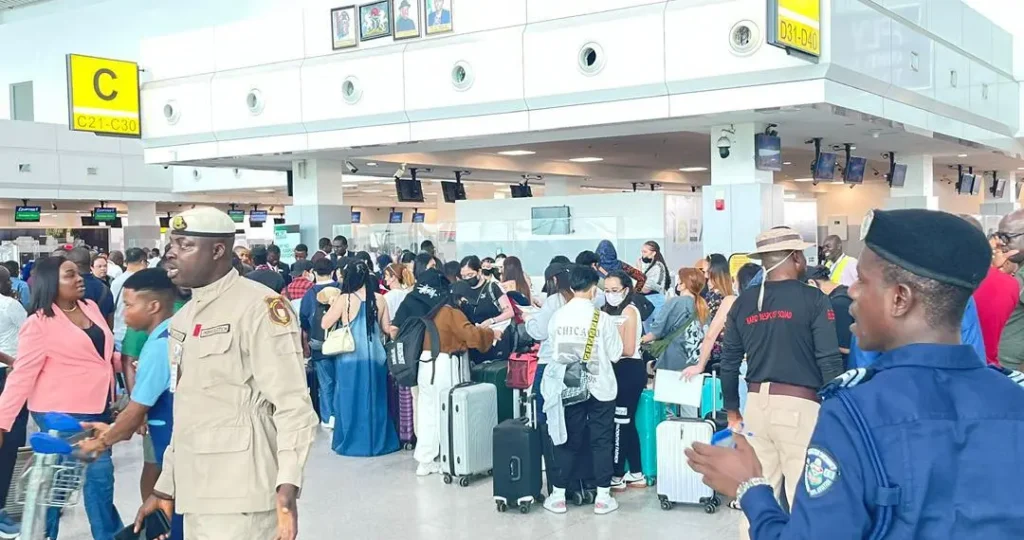The Nigerian Immigration Service (NIS) on Sunday, August 17, began deporting convicted foreign nationals linked to large-scale internet fraud and Ponzi schemes.
The deportation, which marks a major enforcement of Nigeria’s cybercrime policies, affected the first batch of 42 out of 192 convicted foreigners.
They included Chinese and Philippine nationals sentenced for cyber terrorism and financial fraud.
According to the NIS, the first group left Nigeria at exactly 2:00 p.m. on Sunday.
More deportations are expected to follow on Monday, August 18, and Tuesday, August 19.
The convicted individuals were among 759 persons arrested on December 10, 2023, in a joint raid on Oyin Jolayemi Street, Victoria Island, Lagos.
Investigations revealed that the syndicate was operating an extensive cyber fraud network, including Ponzi schemes that defrauded countless victims.
Moreover, court documents showed that several of the charges included the use of fake online identities and training employees of Genting International Co. Limited in fraudulent practices.
These activities were in violation of the Advance Fee Fraud and Other Related Offences Act, 2006.

The Economic and Financial Crimes Commission (EFCC), which prosecuted the cases, confirmed that 192 foreigners were convicted in connection with the scam.
In a statement, EFCC Chairman, Ola Olukoyede, described the convictions and deportations as “a milestone in Nigeria’s fight against cybercrime and financial fraud.”
He stressed that such crimes were aimed at undermining Nigeria’s security and financial stability, but the convictions send a clear signal that the country is no longer a safe haven for fraudsters.
Meanwhile, the NIS explained that all convicts had been officially handed over for deportation following their sentences.
The deportation process highlights Nigeria’s renewed commitment to protecting its digital space while ensuring justice is enforced.
Furthermore, the move is seen as a reflection of how Nigeria’s institutions are aligning with global standards in combating internet fraud.
The crackdown not only restores investor confidence but also reassures citizens of the government’s resolve to protect its economy.













